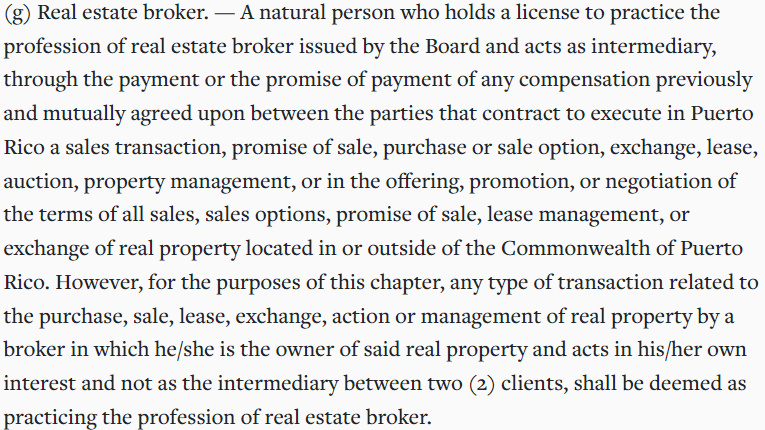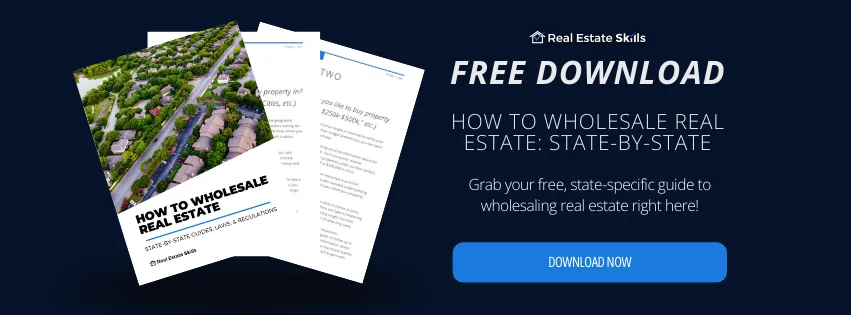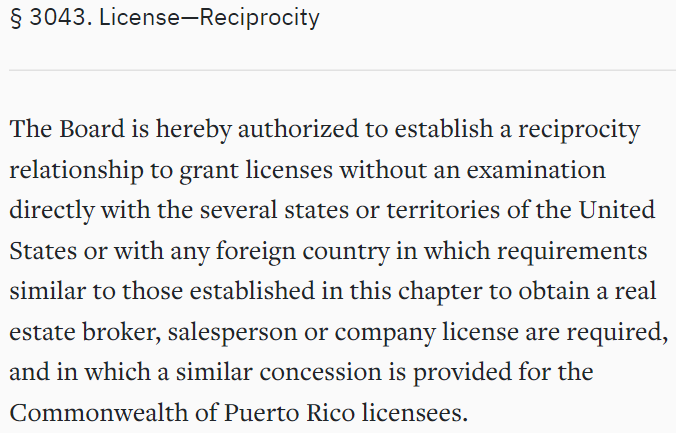
Is Wholesaling Real Estate Legal In Puerto Rico?
Jan 23, 2026Key Takeaways: Real Estate Wholesaling in Puerto Rico
- Legality Status: The answer to the question "Is Wholesaling Real Estate Legal In Puerto Rico" is a definite yes, provided the investor understands the specific boundaries of Act 10 and the local Civil Code.
- Regulatory Oversight: The Real Estate Examining Board (Junta de Corredores) actively monitors transactions to prevent unlicensed brokerage. You must ensure you are selling a contract, not a property.
- Assignment of Rights: Under the Puerto Rico Civil Code, you have the legal right to assign your interest in a contract. This "equitable interest" is the foundation of a legal wholesale deal.
- Transparency Requirements: Full disclosure to both the seller and the end buyer is non-negotiable in the Puerto Rico market to avoid claims of unethical mediation.
- Standardized Strategy: While assignments are common, double closings are frequently used in the 2026 market to maintain a transparent chain of title and satisfy local escrow requirements.
With its growing tourism market and affordable properties, Puerto Rico is catching the attention of real estate investors across the U.S. But before jumping into your first deal, it’s important to ask: Is wholesaling real estate legal in Puerto Rico?
Unlike many states on the mainland, Puerto Rico doesn’t have clearly defined statutes specifically regulating wholesaling, but that doesn’t mean anything goes. Investors still need to understand how local real estate laws, notary requirements, and contract practices affect the wholesaling process on the island.
This guide breaks down everything you need to know about wholesaling real estate in Puerto Rico, including how assignments work, what legal gray areas to avoid, and how to structure deals that stay on the right side of the law. If you're looking to wholesale properties in San Juan, Ponce, or anywhere in between, this is the place to start.
Here's what we'll cover for those wanting to learn more about wholesaling real estate in Puerto Rico:
- What is Wholesaling Real Estate in Puerto Rico?
- What Do You Need To Know About Wholesaling Houses In Puerto Rico?
- Is Wholesaling Real Estate Legal In Puerto Rico?
- What Are The Wholesaling Laws In Puerto Rico?
- Do You Need A License To Wholesale Real Estate In Puerto Rico?
If you’re serious about doing your first real estate deal, don’t waste time guessing what works. Our FREE Training walks you through how to consistently find deals, flip houses, and build passive income—without expensive marketing or trial and error.
This FREE Training gives you the same system our students use to start fast and scale smart. Watch it today—so you can stop wondering and start closing.
What is Wholesaling Real Estate in Puerto Rico?
Despite what many think, wholesaling doesn't revolve around buying houses; it's about flipping paper. But what does that actually mean? The wholesale exit strategy, both in the continental United States and Puerto Rico, revolves around securing the right to buy a property (nothing more and nothing less); you are literally just getting approval to buy the subject property. Once the homeowner gives you that right, you sell your permission to someone else. You are selling your position in the wholesale contract, which is the foundation of why this strategy is legal in Puerto Rico.
While you see this in commercial deals, it is really the engine of the island's residential market. Local wholesalers are the ones digging up the estorbos públicos (public nuisances) and messy herencias (inheritances) that most retail agents won't touch.
The Economic Function:
Real estate wholesalers act as liquidity providers. Unlike a traditional middleman who holds inventory, a wholesaler's inventory is paperwork. You lock in a price with a seller who needs speed and convenience, then pass that opportunity to an investor who has the cash to renovate.
The 4-Step Wholesaling Mechanism
To execute this legally under Puerto Rico's Civil Code, the process follows a specific sequence:
- Source Distressed Assets: Start off by finding a property that works for your purpose (usually an off-market home that's undervalued for any number of reasons). In Puerto Rico, your best bets are homes that need maintenance, have tax liens, or whose owners are facing foreclosure.
- Secure Equitable Interest: You enter into a Purchase and Sale Agreement (PSA) with the seller. Once this document is signed and a "good faith" deposit (earnest money) is placed in escrow, you legally possess an "equitable interest" in the property.
- Market the Rights: This is the legal pivot point. You market your contract—not the property itself—to your buyers' list. This right to purchase is protected by the Doctrine of Equitable Conversion, which recognizes you as a stakeholder in the transaction.

- Assign & Exit: Before the original closing date, you assign your rights to an end-buyer for a fee. The difference between your contract price with the seller and the final price paid by the buyer is your assignment fee.
Why Investors Start Here
For many entering the Puerto Rico real estate ecosystem, wholesaling is the most viable "on-ramp" because it removes the heaviest barriers to entry:
- Capital Efficiency: You do not need to buy the home. You only need the capital for a deposit and marketing costs.
- Risk Mitigation: You avoid the "permitting purgatory" often associated with renovations in Puerto Rico, bypassing construction risks and hidden defects.
- Speed of Capital: While a flip can take 6-12 months, a wholesale deal typically generates profit in 30-45 days.
A Note on the 2026 Market: Puerto Rico's housing market appears to have turned a corner after years of stagnation. Local buyers and Act 60 investors have finally created enough demand to exceed supply, resulting in a "seller's market" where wholesaling becomes a lot more plausible in Puerto Rico.
Master the Legal Side of Wholesaling: Your 2026 Action Plan
You now know that wholesaling is 100% legal in Puerto Rico when structured correctly. But navigating Act 10 and the Civil Code requires more than just theory—it requires a blueprint. Download our comprehensive compliance guide to learn exactly how to structure your contracts, protect your assignment fees, and build a scalable business that withstands regulatory scrutiny. Don't just guess at the laws; audit-proof your strategy today.
What Do You Need To Know About Wholesaling Houses In Puerto Rico?
Founded by an expedition led by Christopher Columbus in 1493, the Commonwealth of Puerto Rico (PR) was further colonized a decade or so later by the Spaniards. Puerto Rico’s name translates to “Rich Port” in Spanish.
Puerto Rico, the Isle of Enchantment, is an island in the Caribbean Sea that is an unincorporated territory of the U.S. It includes the main island plus assorted smaller islands, including Culebra and Vieques.
Residents of Puerto Rico have been considered American citizens since 1917 and have the privilege of traveling from the island to the mainland at will, although their voting powers are limited. Its tropical location is about 1,000 miles from Miami, Florida, and it is considered the smallest island nation within the Greater Antilles archipelago.
Puerto Rico includes 5,320 square miles, of which 3,420 are land and the balance water. It measures 100 miles at its longest east-west point and 40 miles from north to south, and is bigger than Rhode Island or Delaware. The area is primarily mountainous, with coastal regions along the north and south shores. Puerto Rico’s highest elevation is 4,390 feet – Cerro de Punta.
Real Estate Trade Organizations In Puerto Rico
The following organizations are the larger professional organizations in Puerto Rico dedicated to the real estate profession, covering all real estate brokerages and real estate licensees working in Puerto Rico in the real estate marketplace. Each of these real estate professional associations is a member of the National Association of Realtors (NAR)
- The Puerto Rico Association of Realtors (PRAR)
The PR REALTORS Association includes more than 12,000 members, representing sales agents, property managers, appraisers, and brokers from all 89 municipalities in Puerto Rico. The PRAR is the voice for Puerto Rico real estate, with members who volunteer their time to help ensure all residents have the opportunity to lead healthy and successful lives.
Puerto Rico’s Board of Real Estate Brokers, Salesperson, and Companies – the Department Of State (Departamento De Estado Junta Examindors)
The agency in Puerto Rico responsible for administering licenses and upholding real estate law is the Puerto Rico Board Brokers, Agents & Real Estate Companies in the Department of State. The licenses managed by this state agency are as follows –
- Real Estate Agent License (PR Title 20 Chapter 99A-3025-u). – The laws governing Puerto Rican real estate salespeople include 20-99A-3034.

- Real Estate Broker License (PR Title Chapter 99A 20-3025-g) – the laws governing Puerto Rican real estate brokers include 20-99A-3033.

- Real Estate Company (PR Title 20, Chapter 99A -3025-j) - the laws governing Puerto Rican real estate companies include 20-99A-3035.

Real Estate License Reciprocity (PR Title 20-99A-3043)
The following represents the Puerto Rico law regarding real estate license reciprocity -
Interestingly, Puerto Rico refers to a real estate purchase and sale agreement as a Promise Of Sales Contract in P.R. Laws tit. 20, § 3025 (f) –
Is Wholesaling Real Estate Legal In Puerto Rico?
Wholesaling real estate is perfectly legal in Puerto Rico, as long as you know what you are doing and abide by the laws that are put in place for a reason. That said, most people who question the exit strategy's legality are simply unfamiliar with what's happening. Remember, wholesalers are not buying and selling houses; they are merely flipping papers. In a legal wholesale transaction, the investor is simply giving their right to buy a house to someone else.
The distinction is critical because Puerto Rico’s definition of "brokerage" is broad. According to PR Title 20, Chapter 99A-3025-t, a regulated real estate transaction includes:
"Any sales contract, promise to sell, option to buy or sell... or the offer, promotion or negotiation of the terms of a real estate sale... in which a real estate broker, salesperson, or company serves as intermediary."
To stay compliant and avoid acting as an unlicensed "intermediary," you must act as a principal in the deal. This means you are the principal buyer with a valid equitable interest in the property. If you attempt to match a buyer and seller without having a signed contract in place, you are acting as a broker. However, once you hold a valid contract, you possess a marketable asset—your right to purchase—which you can legally assign to an end buyer.
What Are The Wholesaling Laws In Puerto Rico?
Operating here requires a shift in mindset because Puerto Rico follows the Spanish Civil Law system, not the Common Law system used in the 49 other states. This impacts everything from how you close a deal to who handles the paperwork.
The Role of the Notary (El Notario)
In the mainland US, a notary simply verifies a signature. In Puerto Rico, a Notary is a trained attorney who drafts the deed (Escritura Pública) and ensures it complies with local laws. As a result, there is no transferring property with a simple quitclaim deed that you drafted yourself; the transaction must be formalized by a Notary and recorded in a public record.
This is why having a "wholesale-friendly" attorney is more valuable here than a standard title company. They ensure your transaction is properly registered with the Registry of Property in Puerto Rico (Registro de la Propiedad). Without registration, your end buyer is not protected against third-party claims, which makes the property nearly unsellable to future retail buyers.
Why Registration Matters for Wholesalers
The title clearance program policies highlight why you must ensure your end buyer records the deed immediately:
- Protection against Third Parties: Prevents previous owners from selling the property twice.
- Financeability: Unregistered properties cannot get bank financing or construction loans.
- Chain of Title: Ensures a clean history, which is vital for Act 60 investors who require a clear title for tax decrees.
If a dispute arises regarding the registration, it is appealed directly to the Court of Appeals of Puerto Rico.
Who is Exempt from Licensing?
To determine if your wholesaling activity is safe, you should look at the specific exemptions in PR 20-99A-3056. You do not need a license if you fall into these categories:
- (a) Attorneys: Lawyers acting in a professional client relationship.
- (b) Trustees: Those appointed by law to manage assets for a principal.
- (c) Executors & Administrators: Individuals managing the assets of an estate (common in inheritance deals).
- (d) Court Appointees: Persons acting by designation of federal or state courts.
- (e) Property Owners: Proprietors selling their own real property, provided they are not "habitually engaged" in the sale of real estate.
*Note: The Board carefully monitors exception (e) to prevent unlicensed individuals from using it as a loophole for regular brokerage activity.
Do You Need A License To Wholesale Real Estate In Puerto Rico?
The short answer is no—you do not need a real estate license to wholesale in Puerto Rico, provided you stay in your lane. The law is clear: licenses are for agents who represent others. As a wholesaler, you represent yourself.
However, "representing yourself" is not a get-out-of-jail-free card. The Puerto Rico Real Estate Examining Board looks at behavior, not just job titles. To operate legally without a license, you must function strictly as a principal in the transaction.
The 4 Pillars of Unlicensed Compliance
To keep your operation audit-proof, your business practices must align with these standards:
- 1. Valid Equitable Interest: You cannot sell what you don't own. Your contract must be legally binding with a tangible earnest money deposit. If your contract is flimsy or lacks consideration, the Board may view it as a sham document designed to bypass licensing laws.
- 2. Assignment Clauses: Standard PR contracts often prohibit assignments. You must ensure your Purchase and Sale Agreement (PSA) explicitly states that the buyer has the right to assign the contract. Without this clause, your entire exit strategy is dead on arrival.
- 3. Transparency is Your Shield: Wholesaling real estate relies on speed, not secrecy. Disclose your intent to profit. When sellers know you are an investor looking to resell for a profit, you eliminate the grounds for a "misrepresentation" lawsuit later.
- 4. Market the Contract, Not the House: This is where most rookies get fined. You do not have the legal right to place a "For Sale" sign in the yard or list the property on the MLS. You are marketing your rights to the contract.
Strategic Exits: Assignment vs. Double Closing
In Puerto Rico, your risk is evaluated based on how you plan on exiting the deal. While wholesalers use both assignments and double closings, one offers a lot more legal protection on the downside.
Option A: The Assignment of Contract
The contract assignment is the most common strategy used. You sign with the seller, find a buyer, and assign your rights for a fee. It is fast and cheap, but it carries risk: your profit (assignment fee) is visible to everyone on the HUD-1 settlement statement. In a tight market, a large fee can sometimes kill the deal at the closing table.
Secure Your Deal with Bulletproof Contracts
In Puerto Rico, a vague contract is your biggest liability. To establish a valid equitable interest that satisfies local regulations, your paperwork must be airtight. Download our attorney-drafted Wholesale Real Estate Contracts—including the Purchase & Sale Agreement and Assignment Contract—to ensure every deal you sign is secure, assignable, and ready for the closing table.
Option B: The Double Close (The "Safety Valve")
A double closing involves two separate transactions back-to-back. You buy the property from the seller (A-to-B) and immediately sell it to your end buyer (B-to-C).
Why this is smarter in Puerto Rico:
- Legal Clarity: Remember exception (e) in Law No. 10? It exempts "proprietors... who sell or alienate their own real property." By double closing, you become the owner (Proprietor), even if only for 15 minutes. This places you firmly under the protection of the exemption.
- Privacy: Your profit is buried in the spread between the two transactions, not listed as a line item fee.
- Chain of Title: It creates a cleaner history in the Registry of Property, which local title companies prefer.
Pro Tip: While double closing is safer, it is more expensive due to double notary fees and transfer taxes. Calculate your numbers carefully—if the spread is thin (under $10k), an assignment might still be the better mathematical choice.
Final Thoughts on Wholesaling in Puerto Rico
Real estate law protects consumers from unscrupulous individuals and helps prevent mal-intended people from taking advantage of the buyers, sellers, the housing market, and the real estate industry. Essentially, this type of legislation acts as a significant safety net for unsuspecting consumers.
When carried out within the letter of Puerto Rico’s law, real estate wholesaling can be an excellent real estate investment strategy. But, considering the potential consequences for mistakes (intentional or not), real estate wholesalers should approach wholesaling with the spirit of cooperation, prudency, and transparency.
Real estate investing offers lucrative opportunities if wholesalers act without violating Puerto Rico law. Like all real estate investors, real estate wholesalers must complete the wholesale process with professionalism and transparency.
The legality of real estate wholesaling remains a hotly debated topic, so it is important for wholesalers in Puerto Rico to remain current with the relevant law.
But note, a wholesaler has every legal right to market and sell their equitable interest, defined as their ‘right to buy a property according to predetermined terms'.
If you’re serious about doing your first real estate deal, don’t waste time guessing what works. Our FREE Training walks you through how to consistently find deals, flip houses, and build passive income—without expensive marketing or trial and error.
This FREE Training gives you the same system our students use to start fast and scale smart. Watch it today—so you can stop wondering and start closing.
*Disclosure: Real Estate Skills is not a law firm, and the information contained here does not constitute legal advice. You should consult with an attorney before making any legal conclusions. The information presented here is educational in nature. All investments involve risks, and the past performance of an investment, industry, sector, and/or market does not guarantee future returns or results. Investors are responsible for any investment decision they make. Such decisions should be based on an evaluation of their financial situation, investment objectives, risk tolerance, and liquidity needs.










